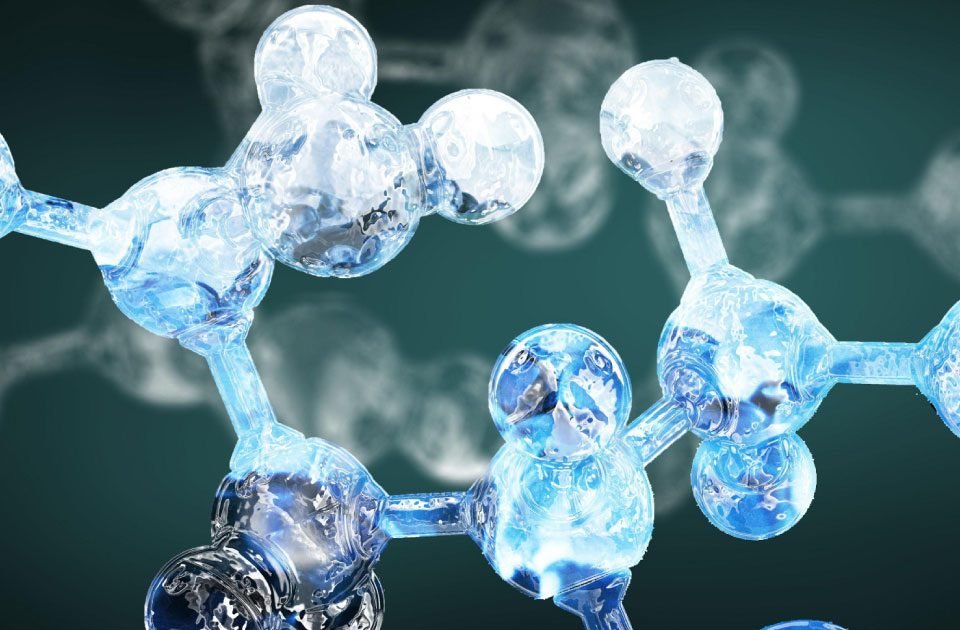
Water Fountain of Youth
11 August, 2019
Free Radicals and their Bad Effects
11 August, 2019Cellular aging
Scientific studies indicate that the cells and tissues of a young person have 10 times more enzymes than an older person and that acidifying environments significantly impair the proper functioning of these enzymes.
We could ask ourselves then, what are enzymes? The answer is simple, they are specialized protein molecules that accelerate up to thousands of times the biochemical reactions of each cell, tissue, organ or system of our body. In this sense, enzymes are vital substances, without which the chemical reactions necessary for our body to function optimally would not take place, as they regulate body temperature, muscle contraction, nerve conduction, urine excretion, gas exchange in the lung, oxygen utilization by cells, cell growth and repair, as well as the digestive process and many other vital activities.
If the cellular pH becomes unbalanced beyond normal parameters, our enzymes become inactivated. Consequently, if enzyme levels decrease, the body’s own cellular repair and defense processes cease to respond efficiently, causing the cellular aging process to accelerate.
To all this we must add the effect of free radicals on our organism and their increasingly recognized influence on aging.
Free radicals
Our body is made up of billions of cells, each of which is made up of molecules. These molecules, in turn, are groups of one or more atoms joined by chemical bonds, which are surrounded by negatively charged electrons and make up the molecules. In this sense, the electrons are orbiting the atoms creating equilibrium.
If equilibrium is lost because one or more of their electrons are unpaired, this generates what are known as Free Radicals, which are nothing more than unstable molecules that have lost one or more electrons and are highly reactive.
The mission of this molecule is to remove or take the missing electron from the molecules that are around them to regain stability. However, if this process is done too frequently and the body does not have time to restore the stolen electron, the molecules from which the electrons were extracted start a chain reaction that deteriorates many cells and even destroys and mutates their genetic information, which facilitates the development of various types of diseases and therefore the aging of our organism.
In this sense, oxidative stress is caused by the imbalance between the production of free radicals and the capacity of our biological system to quickly neutralize the intermediate reagents and repair the damage they cause.
Aging effects
The effects of aging are mainly evidenced by:
- Atrophy of most organs and tissues.
- Progressive decline in the efficiency and vigor of all physiological functions, especially cardiac performance, muscle strength and mental alertness, among others.
- Increased susceptibility to malignant processes, autoimmune diseases and infectious processes, i.e. deficient functioning of the immune system.
- Increased vulnerability to trauma.
- Decrease in VO2 max, (oxygen capacity).
Although it is true that this process affects all human beings, it is also true that quantitatively it does not happen to all of us at the same age. For this reason, it is possible to see people who at 60 years of age may look very old while others still look young. Similarly, at 80 years of age there are those who are already elderly and others do not even look the age they are, which shows that there are individual factors that make chronological age and functional age vary from one individual to another, and not only due to a natural process.

Tools to combat oxidative stress or free radicals
Naturally, human beings have internal defense mechanisms and systems to neutralize free radicals, known as Antioxidants, substances that have the ability to inhibit oxidation (electron capture process) caused by free radicals. Some act at the intracellular level and others at the cell membrane, but always together to protect our organs and systems.
However, their function can be affected when, in addition to having to fight natural radicals, they must also counteract those coming from external sources such as industrial pollution, tobacco, radiation, medications, chemical additives present in processed foods and pesticides, to mention just a few.
Antioxidants
Obviously the danger of oxidation caused by free radicals is counteracted by providing the body with antioxidants to neutralize them and thus prevent their harmful action, especially vitamins C and E, beta-carotene and selenium which act by releasing electrons into the blood which, when captured by free radicals, convert them into stable molecules.
Alkaline water
During the development of several investigations, Japanese scientists confirmed that the consumption of alkaline water helps the organism to eliminate the acid wastes, produced by the natural process of cellular digestion and that accumulate in the basic system of Pischinger or extracellular liquid, balancing the pH of the whole organism. They proved that drinking 5 to 6 glasses of alkaline water daily, makes the organism preserve its balance by keeping it slightly alkaline, which should be its natural favorable state.
In the same vein, the statistics of the Center for Disease Control of the U.S. government, the 4 leading causes of death in the United States are:
- Heart attack
- Cancer
- Stroke and
- Drug side effects.
However, projections indicate that cancer will occupy the first place. Hence the importance that has taken to anticipate the conditions and that alkaline water has its share of importance by providing a large amount of free OH- (Hydroxyl) electrons that can block the alteration of normal cells, since being a substance of low molecular weight and great dynamism allows it to reach all tissues of the body in a very short time.
Did you know?
In its infinite wisdom, the body has chosen to save the kidneys and liver from degradation by excess acid. Of course as a result of the outcome of that action there is a cost to be paid. And it is known as obesity, decreased immunity, lack of energy and all the acid-related diseases we are exposed to, including cancer, diabetes, osteoarthritis and many, many more.




